Hate crime policing to be reviewed after spike in reports
- Published
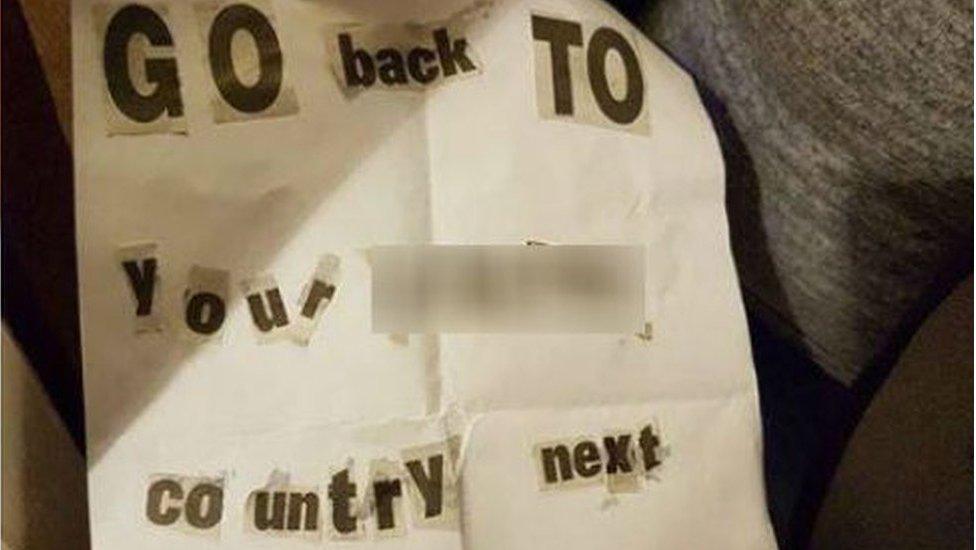
A Polish family in Plymouth received what police described as a "hate-filled" letter
Police handling of hate crime is to be reviewed after a sharp rise in incidents following the EU referendum, the home secretary has announced.
Her Majesty's Inspectorate of Constabulary (HMIC) will analyse how forces in England and Wales respond, Amber Rudd said.
It comes after figures showed there have been more than 6,000 reports of hate crime to police since mid June.
The review will also look at how hate crime and abuse is handled in schools.
Meanwhile, the government has announced its plan to tackle hate crime, external in England and Wales.
UK's Polish media shocked by hate crimes
Do Europeans still feel welcome?
Ms Rudd has commissioned HMIC to carry out a "scoping study" into forces' understanding of and response to hate crime of all types, including crimes against the disabled.
"That will help to give confidence, to give reassurance, and also to make sure communities who feel they're experiencing too much hate crime are able to get that confidence back from the police that it's being addressed," she said.
The government's action plan includes:
an assessment of the level of anti-Muslim, anti-semitic, homophobic, racist and other bullying in schools. This will be used to "inform further action" against such bullying
action to tackle hate crime online, on public transport and around the "night-time economy"
a £2.4m fund for security measures at places of worship
£300,000 to establish three projects to "explore innovative new ways" of tacking hate crime in local communities

Analysis

The government's action plan includes efforts to tackle online hate
Dominic Casciani, BBC home affairs correspondent
There is clear evidence that hate crime is under-reported to police - perhaps only a quarter of incidents get logged - and victims are more likely to be dissatisfied with the response they receive than people reporting other crimes.
So a great deal of this new action plan is squarely aimed at improving what the police and officials know about what's going on and how they then respond.
One potentially important measure is a renewed push to get hard-to-reach groups, such as some minorities, to record incidents accurately to help the police see the bigger intelligence picture.
Other measures will need manpower and resources - such as a proposed database of the often coded symbols and slogans used in online hate.
But the fact that the Home Office is going to renew what it knows about neo-Nazis arguably speaks volumes: the government wants to be seen to be taking hate crime seriously.
Its critics ask why has it taken so long.

On Monday, the government urged prosecutors to push for tougher sentences for people committing hate crimes, following a rise in incidents after the EU referendum.
Figures released last week showed more than 6,000 alleged hate crimes and incidents were reported to police in England, Wales and Northern Ireland in four weeks from the middle of last month.
The daily rate peaked at 289 on 25 June, the day after the referendum result was announced.
Incidents of hate crime in late June included the distribution of cards bearing the words "no more Polish vermin", and numerous reports of non-white people being told to leave the country.
BBC presenter Trish Adudu racially abused on street
Ms Rudd said hatred had "no place whatsoever in a 21st Century Great Britain".
"We are Great Britain because we are united by values such as democracy, free speech, mutual respect and opportunity for all," she said.
- Published24 July 2016
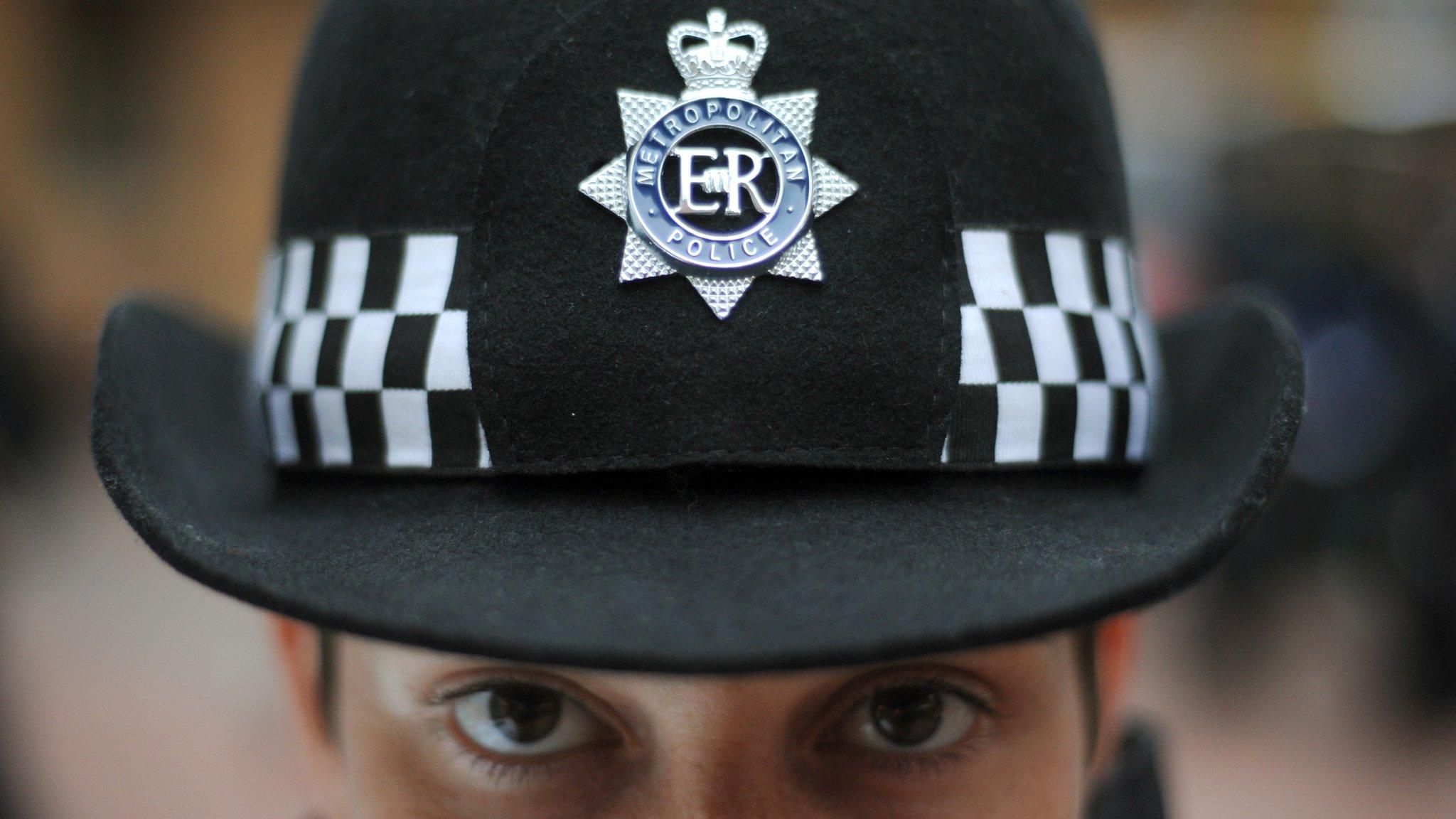
- Published22 July 2016
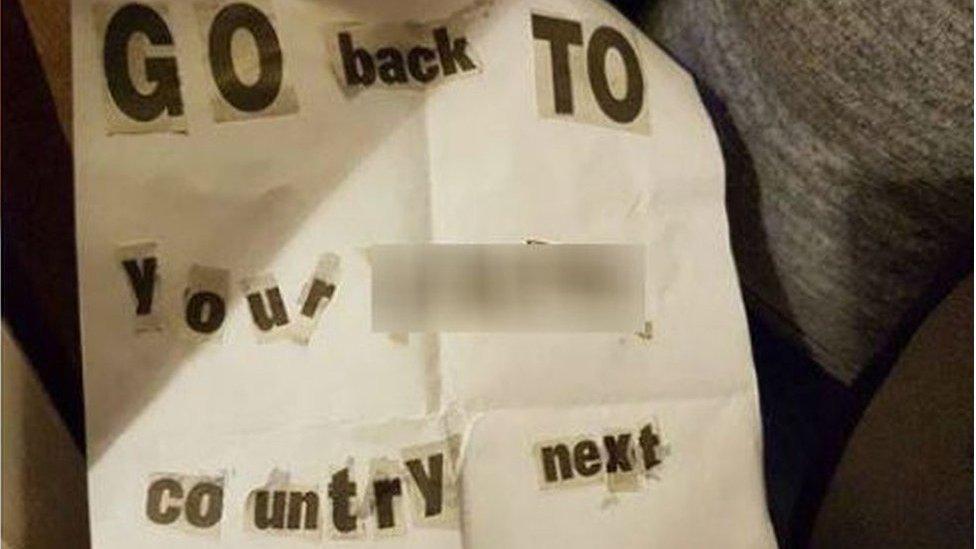
- Published8 July 2016
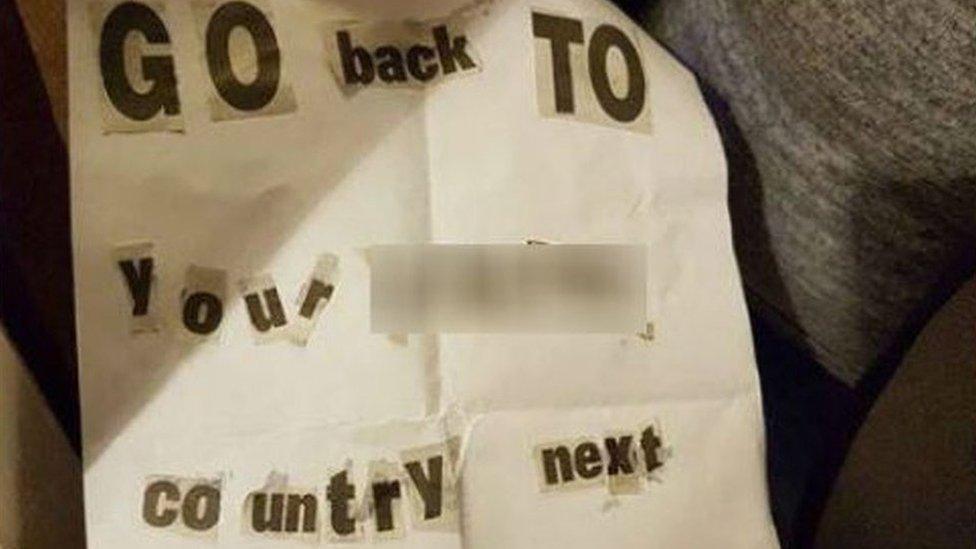
- Published28 June 2016
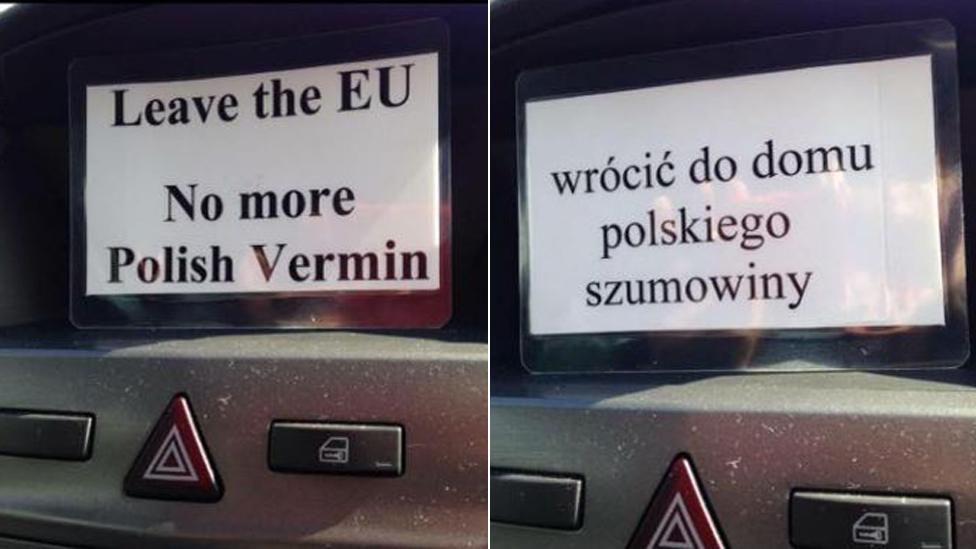
- Published27 June 2016
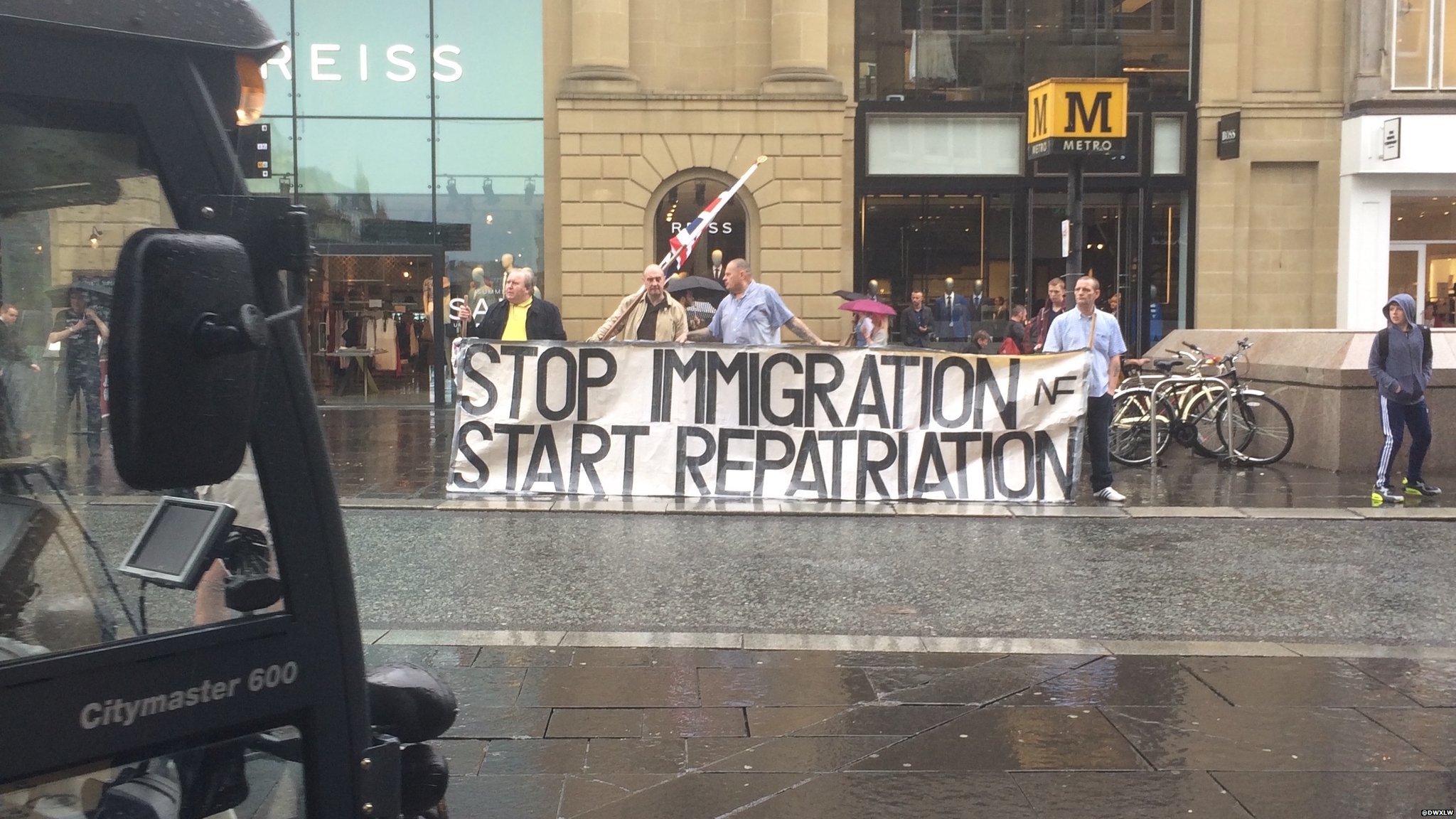
- Published26 June 2016
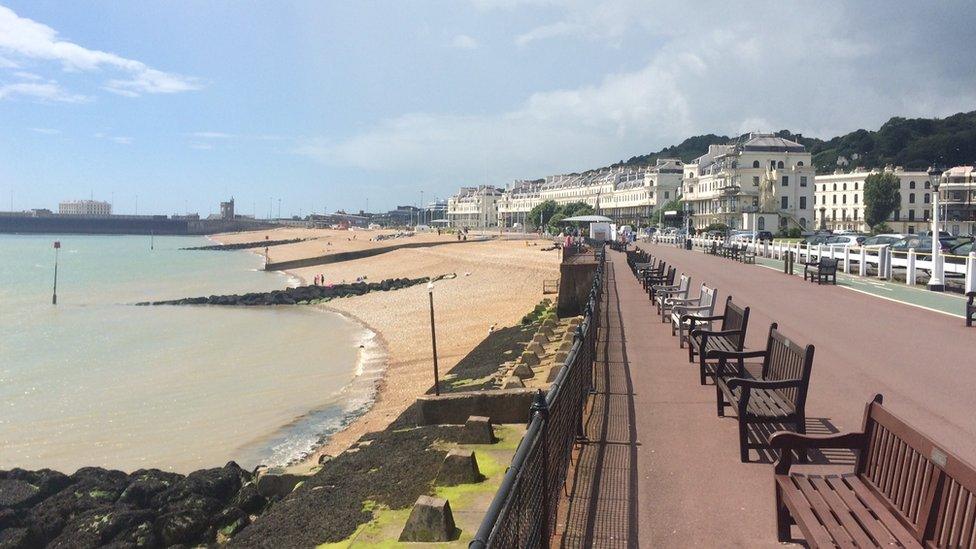
- Published27 June 2016
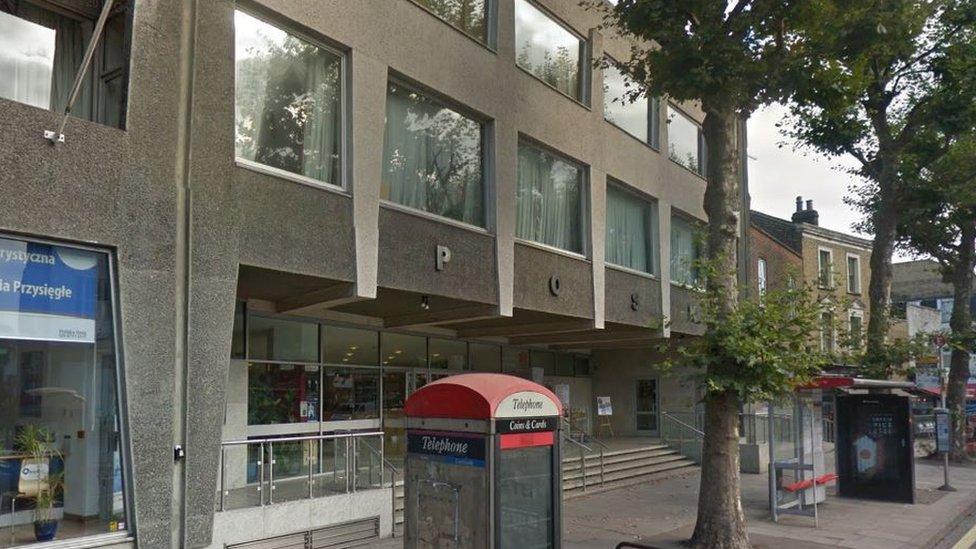
- Published26 June 2016
